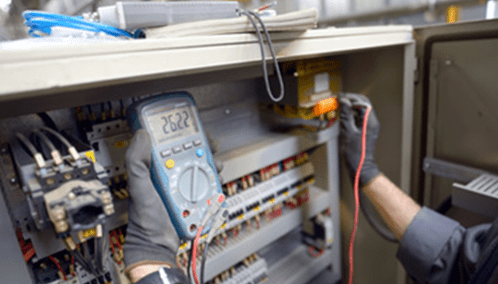
Why Instrument and Control Systems Technology Is a Viable Career
Instrument and control systems technicians continue to have long-term employment because of rising automation in the manufacturing, electrical, technology, and computer sectors. They work with a variety of tools to produce neat and precise work. Technicians repair, calibrate, adjust, and restore many different instruments.
Technicians need good manual dexterity to effectively perform all job functions in the industry. They need an Associate Degree in this field and need to be flexible for working with varied job demands. Currently, job locator services have hundreds of jobs listed for Instrument and Control Systems technicians in many states.
What Instrument and Control Systems Technology Is All About
Technicians in this field of technology work with the measurement and control of electronic instruments and control systems. They also help design and implement the systems that control process variables in many industries. These process variables include:
- Flow

- Force
- Humidity
- Hydraulics
- Level
- pH
- Pressure
- Temperature
- Speed
Instrument and Control Systems Technology technicians assist engineers in researching, designing, and developing instrument control devices, electronics, and equipment. They typically work in processing plants and manufacturing facilities worldwide. A significant part of their jobs is to monitor these systems to ensure they are working at peak performance. If they don’t, necessary corrections are made to meet current company and industry standards.
Technical Education and Technician Jobs Are Blooming
 Many industrial companies use programmed electronic equipment to process their work and products. Because they are complex, electrical instrumentation technicians must come to the rescue and solve problems. Their jobs are to keep devices and equipment running at peak production.
Many industrial companies use programmed electronic equipment to process their work and products. Because they are complex, electrical instrumentation technicians must come to the rescue and solve problems. Their jobs are to keep devices and equipment running at peak production.
The current and future job demand for ICS technicians remains constant and on an upward trend. The Bureau of Labor Statistics (BLS) reveals that 125,800 jobs were in place for electrical and electronic engineering technicians in 2019. Of these, 14,600 were specifically for electro-mechanical technicians, and the projected job growth for 2019-2019 is 2%. The May 2019 median wage for electro-mechanical technicians was $58,350.
| “Technicians need good manual dexterity to effectively perform all job functions in the industry they prefer. They need an Associate Degree in this field and need to be flexible for working with varied job demands.” |
What to Expect When You Are Hired
The typical manufacturing facility and processing plant require the newly hired people to have a basic understanding of and skills in Instrumentation and Control Systems. They need experience in:
- How machines and electronic devices work
- Working with computers and related software
- Technical writing and communication
- Electricity and electronics principles
- Pressure, level, motor controls, relay logic
- Programmable logic control, temperature, hydraulics
- Flow, valves, final control elements, process control theory
College students receive training in all these areas so they can put their knowledge and skills to use in installing, maintaining, and troubleshooting electronic devices and equipment.
Be Prepared with an Associate Degree (AOS)
The best way to prepare for a career in Instrument and Electronic Control  Systems is to earn an Associate Degree in Instrument and Electronic Control Systems. Here you will find qualified faculty who are veterans of the field to teach relevant fundamentals. Staff is available to assist with counseling, financial aid for those who qualify, and job placement.
Systems is to earn an Associate Degree in Instrument and Electronic Control Systems. Here you will find qualified faculty who are veterans of the field to teach relevant fundamentals. Staff is available to assist with counseling, financial aid for those who qualify, and job placement.
Look for an industry-approved program at a fully accredited technical college for excellence in training and education. By doing so, you will not only be well trained for an entry-level job, you will be prepared for a ‘better life.’
What Graduates Have to Say About Their Training
Too many graduates of four-year universities report they can’t find a job, and they have large college loans to pay back. Technical college graduates don’t seem to share these problems and do find good-paying jobs. Here is what most technical graduates say:
¨ “I received a better return on my college for the money spent than some of my friends with a bachelor’s degree.
¨ I did not have to take extraneous credits and unnecessary courses.
¨ Hands-on training is better than classroom lectures.
¨ I learned specific skills directly related to my job and career.
¨ My classes and labs were smaller and I got more one-on-one training.
You can enjoy all these benefits at ITI Technical College in Baton Rouge, Louisiana.
For more information about graduation rates, the median debt of students who completed the program, and other important information, please visit our website at: https://iticollege.edu/disclosures/


